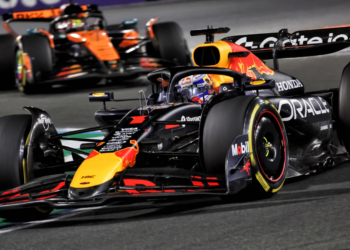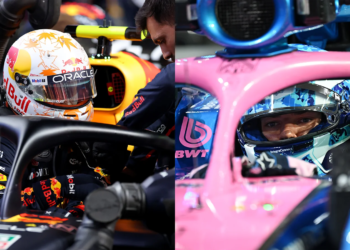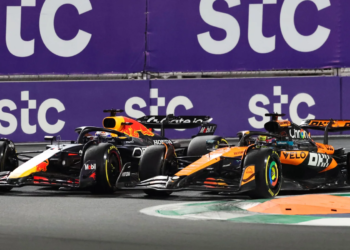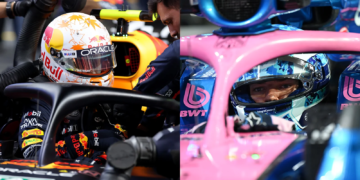Organisers of the Singapore Grand Prix have committed to halving the event’s carbon emissions by 2028.
A report by Blackbook Motorsport has revealed that last year’s event generated 2,372 tonnes of carbon dioxide.
Organisers of the night race in Singapore plan to slash this figure by just over 50% by 2028, the final year of the grand prix’s current contract to host Formula 1.
To achieve this, the Singapore GP will be changing how generators are fuelled to power the event, by replacing diesel with hydrotreated vegetable oil.
A renewable energy source, hydrotreated vegetable oil will be incorporated into half of the Marina Bay Circuit’s generators by 2025 and 100% of generators by 2028. It is estimated that this will reduce carbon emissions by 52%.
In a statement reported by Blackbook, Sasha Rafi, director of sustainability for the Singapore GP, said: “We have adopted incremental sustainability measures since our debut in 2008, but with advancements in technology and the evolution of best practices, we now have an opportunity to do more.”
Powering the Singapore Grand Prix is by no means an easy feat.
F1’s first-ever night race, the Singapore GP requires a significant amount of power to keep the Marina Bay Circuit lit throughout the grand prix weekend and then there’s powering the surrounding infrastructure of the event as well.

But Singapore’s move to make the event more sustainable fits the wider manifesto of F1 itself.
The sport has set itself the bold target of achieving a net-zero carbon footprint by 2030 and has already made steps to help achieve this goal.
For instance, the 2024 calendar sees a revised schedule of races, with the majority of the events grouped together geographically to avoid excessive air travel between rounds.
As well as this, in 2026, F1 power units will incorporate 100% sustainable fuels and increased hybridisation.
Another event that has been making strides to be more sustainable is the Austrian Grand Prix.
At this year’s event in Spielberg, F1 trialled an environmentally friendly system to power the pit lane, paddock and broadcast areas for the entire weekend, incorporating the use of hydrotreated vegetable oil biofuel and 600m2 of solar panels.
The measures being taken in Austria and now Singapore, across the entirety of F1 itself as well, will help the sport stay relevant in an increasingly sustainably conscious world.









